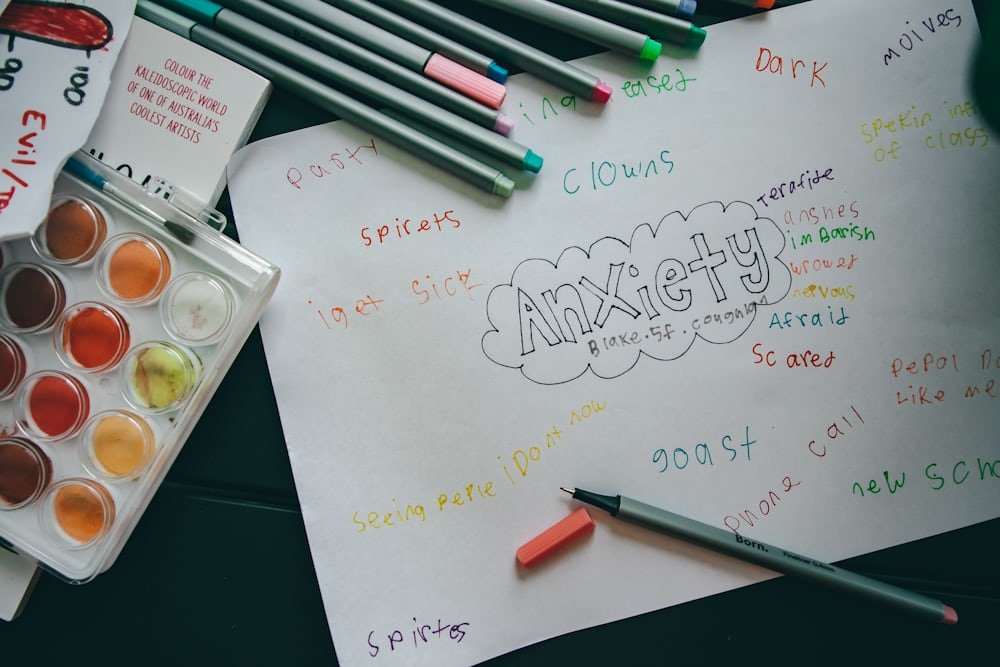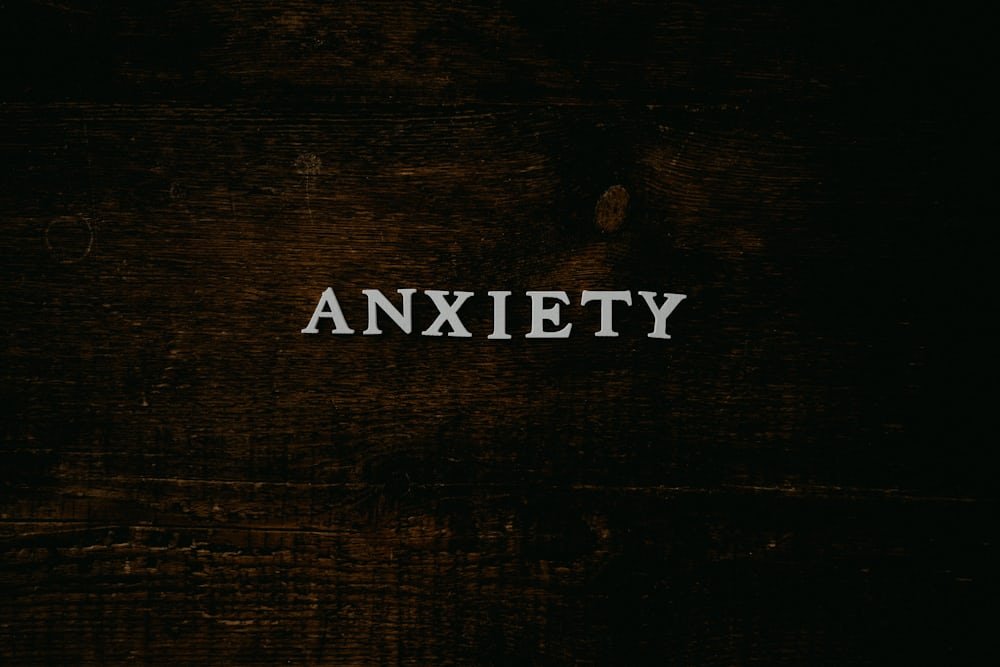Introduction
A. Definition of Anxiety
Uneasiness is a multi-layered close-to-home state described by over-the-top concern, worry, and dread. It goes past typical pressure reactions and can altogether affect one’s day-to-day routine and prosperity.
B. Predominance of Anxiety Issues
Anxiety issues are strikingly normal, influencing individuals of any age and foundations. Insights uncover a boundless predominance, underscoring the requirement for a more profound comprehension and powerful administration of tension-related issues.
C. The Significance of Understanding Habits Adding to Anxiety
Understanding the habits that add to anxiety is critical in light of multiple factors. By recognizing and tending to these habits, people can make proactive strides towards better emotional wellness, cultivating a more adjusted and satisfying life.

1. The Association among Habits and Anxiety
A. Outline of What Habits Mean for Psychological Well-Being
Habits assume a vital part in moulding emotional wellness. Positive habits add to prosperity, while negative habits can worsen pressure and anxiety. Perceiving this association is essential for cultivating a better outlook.
B. Role of routines in anxiety development
Laying out schedules can either relieve or heighten anxiety. Predictable and solid schedules give dependability, while tumultuous or undesirable examples can add to elevated feelings of anxiety. Perceiving the effect of routine is fundamental for overseeing anxiety.
2. Normal Habits Prompting Anxiety
A. Exorbitant Virtual Entertainment Use
The inescapable utilization of online entertainment can cultivate correlation, unreasonable assumptions, and a feeling of dread toward passing up a major opportunity (FOMO). Defining limits via virtual entertainment utilization is crucial for keeping a positive mental state.
B. Perfectionism
Making progress toward flawlessness frequently brings about self inflicted strain and anxiety. Embracing blemishes and setting reasonable assumptions can ease this weight, advancing a better mentality.
C. Absence of rest
Lack of sleep altogether influences psychological well-being, adding to anxiety. Focusing on sufficient and steady rest is a fundamental stage in anxiety management.
D. Unfortunately, using time effectively
Disruption and unfortunate use of time productively can prompt persistent pressure. Carrying out powerful time usage procedures is fundamental for lessening uneasiness connected with overpowering liabilities.
E. Undesirable Dietary Patterns
Dietary decisions straightforwardly influence emotional well-being. Unfortunate sustenance can add to uneasiness, making it basic to take on a decent and sustaining diet for generally prosperity.

3. Effect of Negative Self-Talk
A. Figuring Out Self-talk
Self-talk includes the interior discourse we have with ourselves. Negative self-talk can altogether add to anxiety, featuring the significance of developing positive inward exchange.
B. Perceiving Negative Examples
Distinguishing negative idea designs is a key stage in breaking the pattern of anxiety. Expanded mindfulness empowers people to challenge and reevaluate these horrendous contemplations.
C. Breaking the Cycle
Addressing negative self-talk requires deliberate efforts to break the cycle. Methods, for example, such as mental rebuilding and positive certifications, can be amazing assets in developing a more hopeful outlook.
4. Delaying and Anxiety
A. Connect Among Delaying and Anxiety
Hesitation frequently originates from anxiety about assignments. Understanding this connection permits people to address the main driver and carry out procedures to conquer hesitation.
B. Procedures to beat dawdling
Compelling systems for conquering tarrying incorporate breaking undertakings into more modest advances, defining sensible objectives, and using time usage strategies. These methodologies assist with reducing the tension related to postponed undertakings.
5. Overthinking and rumination
A. Characterising Overthinking and Rumination:
Overthinking includes harping unnecessarily on contemplations, while rumination is a dull spotlight on pessimistic feelings. Both contribute essentially to anxiety, requiring care and self-guideline to control.
B. The Endless Loop of Overthinking
Overthinking can sustain a pattern of uneasiness, prompting more bad considerations. Intruding on this cycle through care, interruption methods, and mental social procedures is fundamental for overseeing anxiety.
C. Methods to control overthinking
Controlling overthinking includes rehearsing care, defining limits on rumination, and diverting considerations towards positive and useful roads.
6. Evasion Ways of Behaving
A. Perceiving Evasion
Aversions to ways of behaving, for example, trying not to challenge circumstances or feelings, can elevate anxiety. Perceiving these ways of behaving is fundamental for starting positive changes.
B. Outcomes of aversion
Aversion might give impermanent help, however, it propagates anxiety over the long haul. Understanding the results urges people to confront difficulties straightforwardly, advancing flexibility and development.
C. Progressive Openness
Treatment Steady openness to dreaded circumstances, with legitimate help, is a restorative way to deal with beating evasion ways of behaving. This organized technique assists people with building resistance and flexibility.
7. Absence of actual work
A. Significance of Activity for Emotional well-being
Ordinary, actual work is a strong counteractant to anxiety. Practice discharges endorphins, diminishing pressure and advancing general mental prosperity.
B. Incorporating Physical Activity into a Daily Routine
Daily schedule Making actual work a piece of everyday schedules, whether through work-out schedules, open air exercises, or straightforward stretches, contributes essentially to anxiety on the board.
8. Survival techniques that disturb anxiety
A. Substance Misuse Utilizing substances to adapt to pressure can worsen uneasiness over the long haul. Looking for better survival strategies is urgent for supportable mental prosperity.
B. Looking for consistent consolation
Continually looking for consolation can reduce reliance and sustain nervousness. Building fearlessness and confidence is fundamental for breaking this cycle.
C. Stifling Feelings
Smothering feelings, as opposed to addressing them, can add to uneasiness. Embracing profound articulation and looking for helpful outlets are better other options.
9. sound propensities to battle uneasiness
A. Care and Reflection
Rehearsing care and reflection cultivates a present centered outlook, diminishing nervousness. Basic breathing activities and directed reflection can be integrated into day-to-day schedules.
B. Laying Out a Rest Schedule
Focusing on quality rest is a foundation for mental prosperity. Making a quiet sleeptime routine and guaranteeing an agreeable rest climate are fundamental propensities.
C. Building an emotionally supportive network
Social associations assume a vital part in battling tension. Developing an emotionally supportive network of companions, family, or psychological well-being experts gives a security net during testing times.
10. Looking for efficient assistance
A. Perceiving When to Look for Help
Perceiving the requirement for proficient help includes surveying the seriousness of uneasiness’s side effects. Opportune mediation by clinicians, advisors, or instructors is essential for viable administration.
B. Sorts of Psychological Wellness
Experts Grasping the jobs of various emotional wellness experts, like analysts, specialists, and guides, empowers people to look for the most fitting assistance for their particular requirements.
11. Individual Accounts of Conquering Anxiety
A. Genuine Instances of People
Bringing an end to anxiety Inciting Propensities Sharing individual stories delineates that conquering tension is conceivable. Genuine models give motivation and down-to-earth bits of knowledge to those on comparative excursions.
B. Illustrations Learned and Tips for Other People
Considering examples that got the hang of during the excursion of defeating tension and offering pragmatic tips enables others to move toward better emotional well-being.
Conclusion:
All in all, unwinding the unpredictable association among habits and anxiety is a significant stage towards cultivating mental prosperity. From the hazards of exorbitant web-based entertainment utilisation to the entanglements of hairsplitting, perceiving these normal propensities furnishes people with the ability to assume command over their psychological wellness. The effect of negative self-talk, hesitation, and aversion ways of behaving further underscores the requirement for deliberate endeavours to break free from anxiety-instigating designs.
Recognizing the significance of standard and understanding the results of unfortunate propensities features the role people play in moulding their psychological scenes. Consolidating positive changes, for example, care works on, laying out sound rest schedules, and building a powerful emotionally supportive network, offers unmistakable systems for overseeing tension.
Besides, looking for proficient assistance when required is an indication of solidarity, not shortcoming.
Emotional well-being experts, furnished with mastery, can direct people on their excursion to beating nervousness, offering customised help and intercessions.
Eventually, individual accounts of win-over anxiety act as encouraging signs. Genuine models grandstand that sincerely, with strength and a guarantee of positive change, people can break free from the shackles of anxiety-initiating habits.

FAQs
How might I recognize that my propensities are adding to anxiety?
Perceiving the effect of propensities on uneasiness includes self-reflection and mindfulness. Search for examples of negative contemplations, stress sets off, and repeating ways of behaving that might intensify anxiety.
Is it conceivable to beat anxiety without competent assistance?
While self improvement systems are valuable, looking for proficient help can give custom-made direction and backing. It’s fundamental to assess the seriousness of anxiety and consider proficient assistance when required.
Could positive propensities at any point totally take out nervousness?
While positive propensities fundamentally add to nervousness on the board, complete disposal may not be practical. Notwithstanding, developing a better way of life can prompt a significant decrease in nerve levels.
What amount of time does it require to bring an end to anxiety-instigating habits?
The timetable for ending propensities changes among people. Consistency and obligation to positive changes assume an essential part. It’s crucial to be patient and celebrate little triumphs en route.
Are there explicit activities to decrease anxiety?
Participating in exercises like yoga, reflection, and profound breathing activities can essentially decrease tension levels. Fundamental for finding exercises that impact you and make them a steady piece of your daily schedule
Consolidating these systems and understanding the subtleties of propensities adding to uneasiness engage people to explore their emotional wellness venture with versatility and trust.

